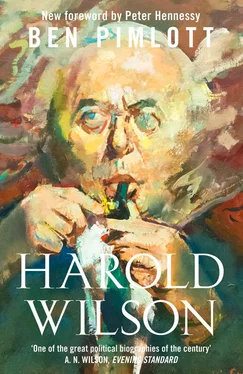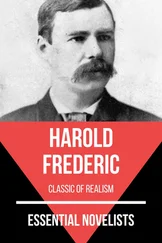1 ...7 8 9 11 12 13 ...23 Herbert’s most important influence was political. Harold turned to his mother for comfort, to his father for information and ideas. There was an element of the barrack-room intellectual about Herbert, whose romantic interest in progressive politics was linked to his own professional frustrations. Herbert felt a strong resentment towards ‘academic’ chemists who, armed with university degrees, carried a higher status within the industry. The need for qualifications became an obsession, as did his concern to provide better chances for his son. One symptom of Herbert’s bitterness was an inverted snobbery, according to which, although privately he saw himself as lower-middle-class (an accurate self-attribution), he ‘always described himself as “working-class” to Tory friends’. 42Another was a growing interest in the egalitarian Labour Party, which fought a general election as a national body for the first time in 1918, and had an especially notable history in the Colne Valley.
Harold entered New Street Council School in Milnsbridge in 1920, at the age of four and a half, joining a class of about forty children, mainly destined for the local textile mills. His schooldays did not start well: his first encounter with scholastic authority so upset him that he used to fantasize about jumping out of the side-car of his father’s motor cycle on the way to school and playing truant. The cause of his unhappiness was a school mistress who set the children impossible tasks and chastised them enthusiastically with a cane when they failed to carry them out. He concluded later that she was ‘either an incompetent teacher or a sadist, probably both’. 43After the first year Harold’s life improved, and he quickly established himself as a brighter-than-average child, though not a remarkable one. He played cricket badly and football quite well, taking the position of goalkeeper in games on a makeshift pitch on some wasteland. In cold weather he used to skate with the other children in their wooden clogs on the sloping school playground. Harold Ainley recalls Wilson as a ‘trier’ at football, rather than a natural games player, and as a ‘very timid’ child. But he was methodical in the classroom. ‘I would say that he was a swot, definitely,’ says Ainley. He used to compete with a little girl called Jessie Hatfield. Usually, she beat him. 44
Harold was not a delicate or weakly boy, but illness stalked his childhood, as it did many of his contemporaries in the 1920s, before the availability of antibiotics or vaccination for many infectious diseases. ‘It is wise to bear in mind constantly that children are frail in health and easily sicken and die, in measure as they are young,’ a Huddersfield Public Health Department pamphlet warned, chillingly, a few years before Harold’s birth. 45Harold came from a sensible, nurturing family. Nevertheless, his health aroused anxiety several times, and once gave cause for serious alarm.
1923, at the age of seven, he underwent an operation for appendicitis. For any little boy such an event (though in this case straightforward enough) would be upsetting, as much for the separation from his parents as for the discomfort. It is interesting that Wilson family legend links it to Harold’s earliest political utterance. ‘The first time I can remember thinking systematically about politics was when I was seven,’ he told an interviewer in 1963. ‘My parents came in to see me the night after my operation and I told them not to stay too long or they’d be too late to vote – for Philip Snowden.’ 46
This anecdote appears in several accounts. Its point is to establish, not only that he was an advanced seven-year-old, but also (what critics often doubted) that he had been politically-minded from an early age. Yet even an exceptional child does not snatch such a remark out of the air. If Harold was talking about politics and Philip Snowden at the age of seven, one reason was that he happened to live in an unusual constituency.
Although geographically and economically close to Huddersfield, Milnsbridge lay just within the scattered Colne Valley electoral division, which had a strongly radical tradition. The Colne Valley Labour Party had been formed in 1891 and could claim to be the oldest in the country. Tom Mann, a pioneering leader of the Independent Labour Party, had stood for Parliament there in 1895. Trade unions were weak throughout the West Riding, and Colne Valley itself was poorly unionized, but the socialist influence was strong, extending to Milnsbridge itself. Quasi-religious, quasi-secular ‘Labour Church’ services (rituals of a short-lived movement that stood historically between Nonconformist Christianity and atheistic socialism as a missing link) were held in the Milnsbridge Labour Club in the 1890s. 47In 1908 a Socialist Brass Band was formed in Milnsbridge, and continued to exist throughout Harold’s childhood. The best-remembered political event in Colne Valley, however, occurred in 1907, when the populist Victor Grayson put up for the seat in a by-election contest as an Independent Socialist, and won. Grayson was MP for the Valley for three years, until dissipation and scandal overtook him.
Grayson had been viewed askance by the Labour establishment. The only ILP MP to back him was the Member for Blackburn, Philip Snowden. When, after the war, Snowden lost his seat and was casting around for another, the memory of his involvement helped him to get the Colne Valley nomination. 48In 1922 Snowden won the seat, and returned to Parliament just as the expanding Labour Party took over from the Liberals as the official Opposition. A year later Snowden, one of Labour’s leading spokesmen, faced the voters again – this time in an election at which his Party hoped to displace the Conservatives. There was a feverish mood in the Valley, and especially in radically-minded households like that of the Wilsons. There were many voices urging people to go out and vote for Philip Snowden, and Herbert and Ethel needed little prompting.
Herbert, once a Liberal, had become a keen Labour partisan. One reason was the ethical socialism of Snowden, an honest, arrogant, ascetic crusader whose appeal to a Nonconformist community like that of Colne Valley is easy to understand. Snowden’s message that ‘individual liberty is impossible so long as men have not equal access to the means of life’, 49struck a particular chord with Herbert, who felt that his own liberty had been curtailed by the early end to his education. He was delighted and uplifted by Labour’s success in the election, and the accession in January 1924 of the first ever Labour government, in which Snowden was appointed Chancellor of the Exchequer. There was much talk of the Colne Valley Member in the Wilson household. A few years later, when his class was asked to write an essay on ‘Myself in 25 Years’, Harold wrote about planning his Budget as Chancellor of the Exchequer.
Nineteen twenty-four was a ragged year for Harold. After his operation, he had to spend the spring term at home convalescing. Not for the last time, confinement due to illness turned him in on himself. Separated from his school-fellows, he learnt to be self-contained, to amuse himself and to keep his own counsel. He also began to display what an early biographer calls ‘a natural disinclination to obtrude or reveal personal sentiment’. For Christmas, he received a model railway. Now, in the months of isolation, he retired to his attic empire with engines, rolling stock and Hornby Magazine , supplementing his reading with the historical sections of Marjorie’s Children’s Encyclopedia.50 An additional interest, shared later with Harold Ainley, was Meccano: piece by piece, Harold constructed an enormous model of Quebec Bridge. Both Harolds were avid readers of the Meccano Magazine; a sign of the Wilsons’ educational aspirations for their son was that they also subscribed to the wordy, up-market Children’s Newspaper.51
Читать дальше











